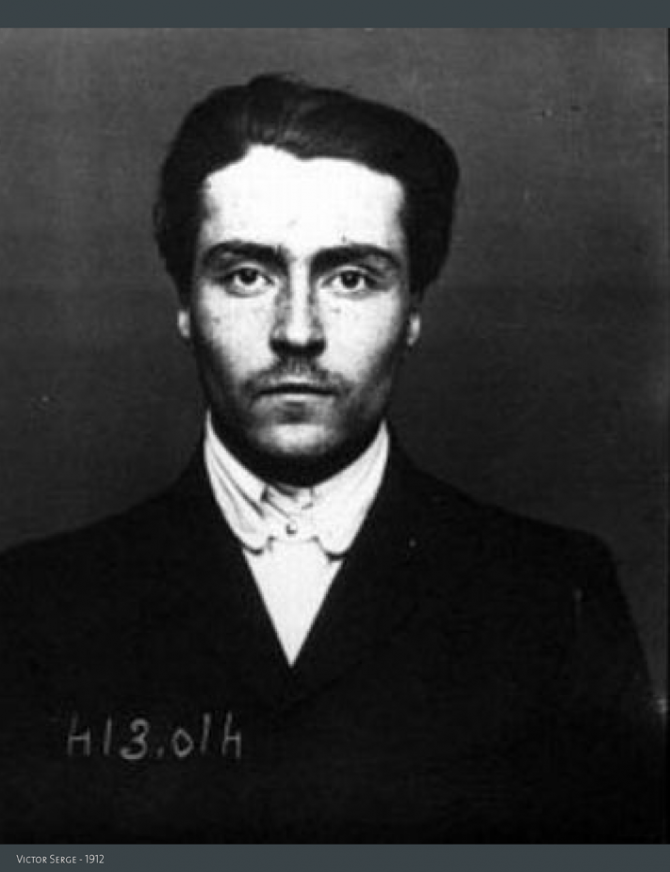From The Commune:
 The last week has seen much media coverage of the seventieth anniversary of the outbreak of World War II, largely devoted to nostalgia and a hefty chunk of British (and Polish) nationalism. What is rarely commented on is the dynamics of political struggle within the countries participating in the bloodbath, and less still the activity of the workers’ movement, which did not in fact purely and simply support the Allies, and had to resist authoritarian measures imposed to varying degrees by each state enforcing wartime control measures.
The last week has seen much media coverage of the seventieth anniversary of the outbreak of World War II, largely devoted to nostalgia and a hefty chunk of British (and Polish) nationalism. What is rarely commented on is the dynamics of political struggle within the countries participating in the bloodbath, and less still the activity of the workers’ movement, which did not in fact purely and simply support the Allies, and had to resist authoritarian measures imposed to varying degrees by each state enforcing wartime control measures.
While some of the struggles that took place had an immediate and significant effect on the outcome of the war, others which totally failed are equally worth remembering. While popular culture venerates Nazis-turned-good, as in the 2008 Tom Cruise film Valkyrie which depicts the 20th July 1944 attempt to assassinate Hitler by aristocratic militarists who had lost faith in their Führer, less well-known are the stories of those who fought Nazism from start to finish, from a position of far less power, severe privations and heavy repression. How many people know that the first action in defiance of the Holocaust was nothing to do with the Allies (who infamously refused to bomb the train tracks to Auschwitz and did little to stop it), but a two-day general strike started by communist dockworkers and tramdrivers in response to raids of Jewish homes in Amsterdam in February 1941? [READ THE REST]
From Eurozine:
The Hungarian Quarterly 195 (2009)
 Two books dealing with the state security apparatus in communist Hungary emphasize the extent to which its members, from informants and their handlers up to high-ranking politicians in the Ministry of the Interior, were subordinate to the Communist Party hierarchy, writes historian and journalist Sándor Révész. This radically calls into question the common treatment of “informants” as scapegoats and shifts the focus to Party officials, many of whom became respected politicians after 1989.
Two books dealing with the state security apparatus in communist Hungary emphasize the extent to which its members, from informants and their handlers up to high-ranking politicians in the Ministry of the Interior, were subordinate to the Communist Party hierarchy, writes historian and journalist Sándor Révész. This radically calls into question the common treatment of “informants” as scapegoats and shifts the focus to Party officials, many of whom became respected politicians after 1989.
“The sources show clearly that a much wider circle of people than the network of agents were responsible for the disadvantages, and even vilification, suffered by thousands of people”, writes Révész. “This makes it hardly surprising that researchers pushing for freedom of information on state surveillance find little support. The response to publications that do find their way to a wider readership is jittery, with researchers generally being accused of the very thing that is least true of them, i.e. that they are only interested in unmasking and pillorying those who were recruited into the informer network.”
After 1956, writes Révész, the covertly totalitarian Kádár regime strove for omniscience as opposed to omnipotence, which in turn entailed a new form of policing. “If a legitimate, constitutional opposition is not allowed to exist, then every activity, person and group represents a threat to national security should it carry the seeds of dissidence.” The lesson to be learned “is that no general conclusions can be drawn about the possibility of refusing to cooperate with the state security services”.
Also:
Slavenka Drakulic on Tito. Timothy Snyder on totalitarianism’s Baltic killing fields. Ben Peck on the Hitler-Stalin pact. Nada Prlja on the red bourgeoisie in Yugoslavia and the coming black communism.
In other news: Lyndon LaRouche’s creeps peddle softcore Holocaust denialism – an Armenian Holocaust survivor is arrested for stopping them.




 The last week has seen much media coverage of the seventieth anniversary of the outbreak of World War II, largely devoted to nostalgia and a hefty chunk of British (and Polish) nationalism. What is rarely commented on is the dynamics of political struggle within the countries participating in the bloodbath, and less still the activity of the workers’ movement, which did not in fact purely and simply support the Allies, and had to resist authoritarian measures imposed to varying degrees by each state enforcing wartime control measures.
The last week has seen much media coverage of the seventieth anniversary of the outbreak of World War II, largely devoted to nostalgia and a hefty chunk of British (and Polish) nationalism. What is rarely commented on is the dynamics of political struggle within the countries participating in the bloodbath, and less still the activity of the workers’ movement, which did not in fact purely and simply support the Allies, and had to resist authoritarian measures imposed to varying degrees by each state enforcing wartime control measures.